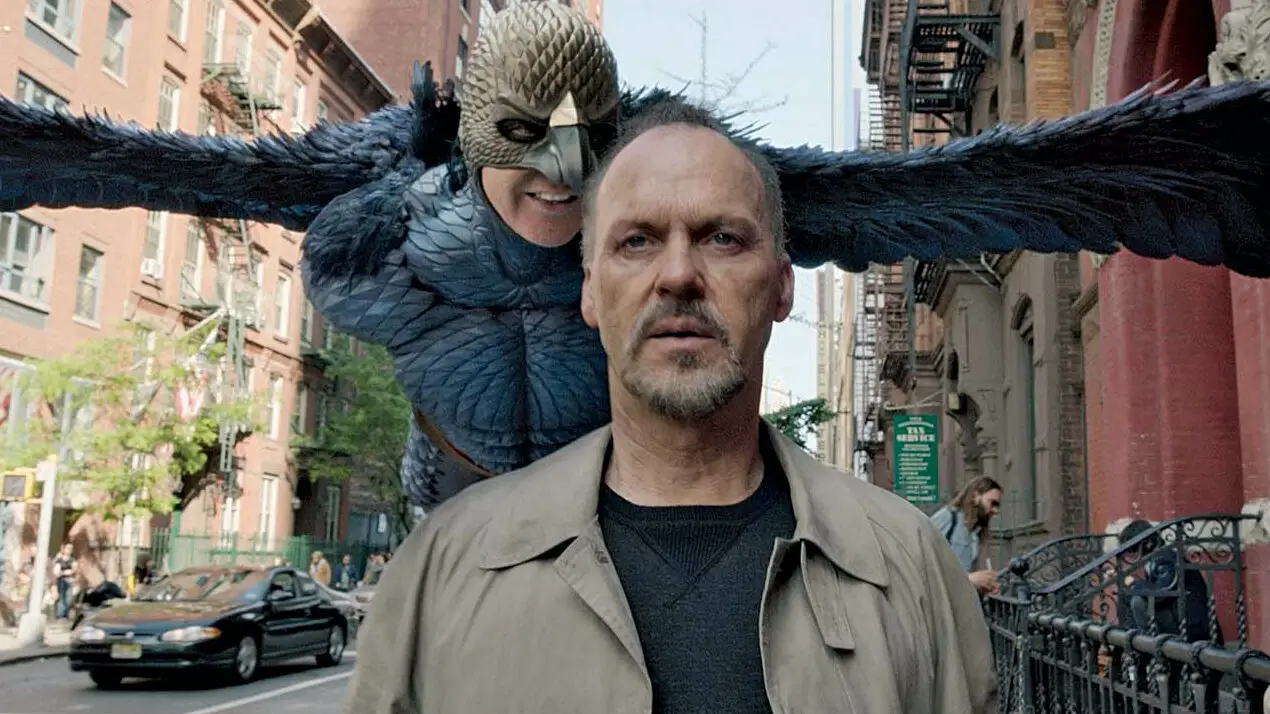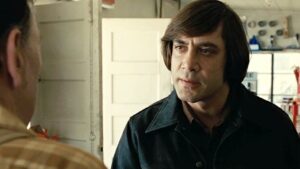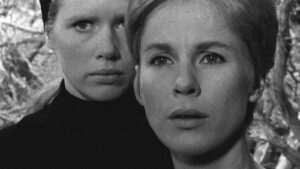Table of Contents
Introduction: The Layers of Birdman
In the cinematic masterpiece Birdman, directed by Alejandro González Iñárritu, the audience is thrust into a whirlwind of psychological and philosophical exploration. This film, a remarkable blend of reality and illusion, invites viewers to delve deep into the tumultuous mind of its protagonist, Riggan Thomson, portrayed by Michael Keaton.
The intricate layers of the story challenge our perceptions of identity, success, and the human condition, leading us to question our own existential crises. In this Birdman analysis, we will unravel the psychological struggles and philosophical queries that both define and confound the characters, while examining the unique visual and narrative techniques that bring this complex narrative to life.
As we embark on this journey through the film’s rich themes, we will uncover the many dimensions of Riggan’s psyche, the burden of his past, and the relentless quest for validation that many of us face in our own lives.

The Struggle for Identity: A Psychological Perspective
The Weight of the Past
In Birdman, Riggan Thomson’s struggle for identity serves as a profound reflection of psychological conflict. Haunted by his past as a once-famous superhero actor, Riggan grapples with the remnants of his former self. He battles a relentless internal dialogue that questions his worth and relevance in a world that has often overlooked him. This struggle evokes themes of identity disturbance, wherein individuals may feel fragmented and unsure of their true selves.
Throughout the film, Riggan’s attempts to distance himself from the Birdman persona only seem to deepen his conflict. His distress is further compounded by his desire for artistic validation and recognition. The pressure to evolve from a commercial Hollywood figure into a serious artist leads to an existential dilemma, manifesting in powerful hallucinations and conversations with the voice of Birdman. This symbolic representation underscores the psychological weight of his previous identity, illustrating how the past can shape and sometimes distort the present.
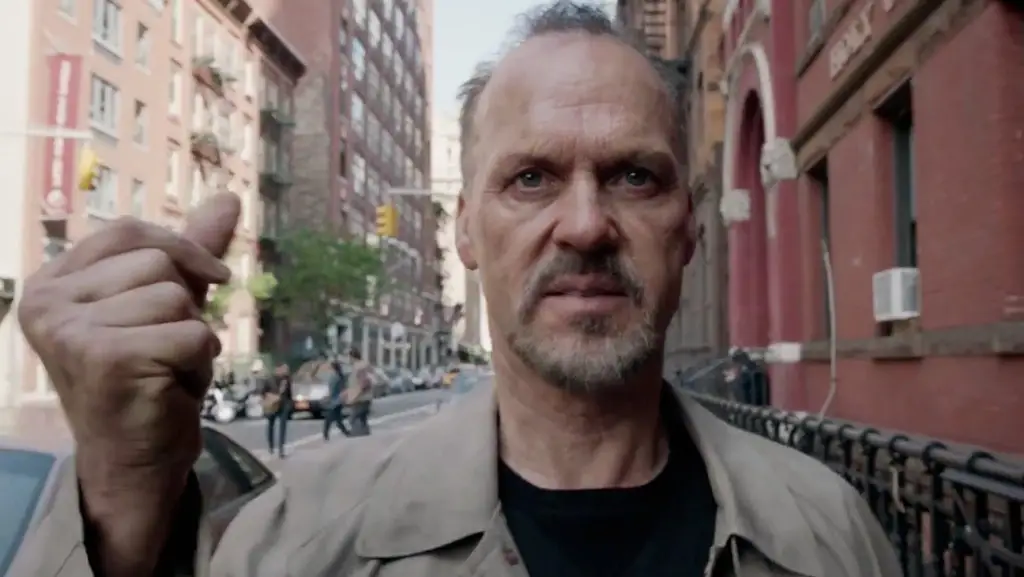
The Quest for Authenticity
As Riggan navigates his tumultuous journey, the film poignantly explores the quest for authenticity. In a world obsessed with celebrity culture and social media validation, Riggan finds himself at odds with the very nature of his existence. He yearns to prove that he is more than just a former superhero; he aspires to be an authentic artist, capable of genuine expression.
This desire for authenticity speaks to a deeper psychological need for self-actualization, a theory posited by Abraham Maslow. As Riggan confronts his fears and insecurities, he embodies the struggle that many face in reconciling their public personas with their inner realities. His relentless pursuit of validation from critics and audiences alike illustrates the precarious balance between self-worth and external perception. The film’s narrative expertly captures this delicate interplay, emphasizing that true identity is often clouded by societal expectations and the pressure to conform.
The Fragility of Self-Perception
The psychological exploration culminates in Riggan’s fragile self-perception. Throughout the film, he oscillates between triumph and despair, reflecting how easily one’s sense of self can be shaken by failure or success. His interactions with the eclectic cast around him serve as mirrors that reflect his deepest fears—fear of inadequacy, rejection, and the relentless march of time. As Riggan’s journey unfolds, viewers are left to ponder the malleability of identity and how external factors can impact one’s psychological well-being.
Ultimately, Riggan’s narrative represents a broader commentary on the human condition—a reminder that the struggle for identity is universal and that the quest for understanding oneself often leads to profound psychological revelations.

Existential Crisis: The Philosophical Underpinnings of Birdman
The Nature of Existence
At its core, Birdman delves into profound existential questions that challenge our understanding of purpose and meaning. Riggan Thomson’s life is a canvas painted with the intricacies of existential philosophy; he grapples with what it truly means to exist in a world that celebrates notable achievements but often overlooks authentic self-worth. The film poses critical inquiries: Is our value determined by others, or can we establish our own significance?
Riggan’s internal struggle reflects the philosophies of existential thinkers like Jean-Paul Sartre and Viktor Frankl, who argue that meaning is not inherent but constructed through individual choices and actions. As Riggan aims to distance himself from the Birdman persona, he finds himself tethered to societal expectations and the looming fear of irrelevance. His journey raises questions of authenticity, as he navigates the fine line between artistic ambition and the need for external validation.
The Burden of Freedom
Another philosophical aspect woven into the fabric of Birdman is the concept of freedom and the burden it brings. Riggan’s desire to create a meaningful artistic work looms large over him, yet the very freedom to choose his path becomes an agonizing burden. This theme resonates with the ideas of Søren Kierkegaard, who emphasized the anxiety that accompanies individual freedom.
In pursuing his dream of starring in a Broadway play, Riggan confronts the existential angst that arises from the choices he must make. Every decision carries the weight of potential failure and societal judgment, compelling him to question the essence of his choices. As he attempts to shed the remnants of his past, Riggan grapples with the notion that true freedom is intertwined with responsibility—an idea that every artist must contend with.
Desperation for Significance
As Riggan’s existential crisis unfolds, it becomes clear that his desperate quest for significance is both moving and tragic. He longs to be remembered and celebrated, not just as Birdman but as a legitimate artist capable of creating something profound. This desire echoes the philosophical notion that humans have an innate yearning to leave their mark on the world.
However, Riggan’s fervent pursuit often leads him to chaos and despair rather than fulfillment. The film captures the paradox of seeking significance in a transient world—a world that frequently casts aside those who strive for artistic recognition. Riggan’s journey serves as a poignant reminder of the existential dilemma that many individuals face: the desire to be relevant in a society that is paradoxically indifferent.

The Burden of Success: Mental Health and Pressure
The Weight of Expectations
In Birdman, Riggan Thomson embodies the relentless pressure that accompanies success in the entertainment industry. Once a celebrated actor, Riggan’s return to the stage is not merely a career revival; it is a quest for redemption and validation. This self-imposed weight of expectation profoundly impacts his mental health, revealing the psychological toll that success can extract from individuals in high-pressure environments.
As Riggan encounters the demands of producers, critics, and even his own internal expectations, the narrative unveils the fragile nature of self-esteem tied to public perception. He grapples with feelings of inadequacy, often measuring himself against his past accomplishments rather than seeking intrinsic fulfillment. This relentless comparison can lead to a dangerous spiral, as seen in many high-profile artists who wrestle with the dual burden of success and mental wellbeing.
The Complexity of Achievement
The film deftly illustrates the irony that shines through the pursuit of success: that achievement often brings forth its own set of challenges. For Riggan, the accolades once celebrated now transform into reminders of fading glory. The incessant drive to regain relevance pushes him into instability, revealing a troubling truth about contemporary fame—a truth that often leaves individuals feeling isolated despite being in the public eye.
Riggan’s mental health challenges manifest through anxiety, depression, and hallucinations, echoing the struggles faced by many within the performing arts. The expectations set by society can create an unattainable standard, where success becomes equated with personal worth. Riggan’s descent into turmoil reflects a broader commentary on how individuals in creative fields may grapple with their identities when faced with the pressure to continually succeed, highlighting the urgent need for awareness around mental health in these high-stakes environments.
The Dichotomy of Anxiety and Creativity
The relationship between anxiety and creativity is intricately woven into the fabric of Birdman. In some artists, high levels of stress can paradoxically fuel the creative process, acting as both a muse and a tormentor. For Riggan, this duality is palpable, as his turmoil sparks moments of brilliance while simultaneously threatening to derail his artistic vision.
The film captures this dichotomy, showcasing how the pressure to succeed can lead individuals to push their creative boundaries, yet it also emphasizes the risk of mental collapse. As Riggan straddles the line between genius and madness, Birdman raises poignant questions about the sacrifices artists make in pursuit of greatness. This tension resonates throughout the narrative, as Riggan’s character becomes a symbol of the broader struggles facing those who tread the razor’s edge of success and mental health.
Ending Explained: Understanding the Final Moments
The Climactic Performance
As Birdman reaches its conclusion, the narrative culminates in Riggan Thomson’s climactic performance, showcasing his vulnerability and desperation for artistic validation. Set against the backdrop of a Broadway play, this moment becomes a pivotal point for Riggan, as he embraces the freedom to finally express his true self. The stakes are incredibly high; it’s a last-ditch effort to reclaim his identity beyond the Birdman persona.
In a surreal blend of reality and imagination, Riggan takes his performance to extreme heights, ultimately leading to a shocking act where he shoots himself on stage. This act serves as a metaphor for his personal and professional demise, encapsulating his fears and frustrations. The audience is left to ponder whether this act represents a final defiance against the constraints of his past or a tragic acknowledgment of his inability to escape the shadow of Birdman.

The Ambiguity of Reality
Following the intense performance, the film presents viewers with a series of ambiguous moments that invite various interpretations. After Riggan’s suicide attempt, he awakens in a hospital room, confronting reality in a raw and stripped-down manner. The question remains: What is real? Is this a moment of resurrection, or merely a continuation of his long-standing struggle with identity?
The film offers an ambiguous ending as Riggan gazes out the window and appears to take flight, suggesting liberation from his burdens. This moment could symbolize his transcendence beyond earthly performance, hinting that he has finally embraced himself wholly. Alternatively, it might reflect a complete disconnection from reality, showcasing Riggan’s permanent entrapment in the Birdman persona. This duality is at the heart of Riggan’s journey—the conflict between the desire for authenticity and the pressures of fame, leaving audiences to grapple with their interpretations of success and freedom.
The Final Shot and Its Implications
The closing moments of Birdman serve as a poignant commentary on the nature of fame, success, and the search for meaning. As Riggan’s fate hangs in the balance, the film poses critical questions about the cost of artistry and the essence of human experience. The final shot, where Riggan’s daughter Sam expresses her concern about his condition, juxtaposes the joy of liberation with the grit of reality.
This moment not only humanizes Riggan but also reflects the complexities of relationships that often suffer in the pursuit of success. The film leaves us contemplating the true nature of achievement and whether it ultimately delivers the satisfaction we seek. In this Birdman analysis, we see that the ending is intentionally layered, resonating with the film’s overarching themes of identity, validation, and the existential struggles that accompany the human experience.

Visual and Narrative Techniques: A Style That Speaks
The Illusion of One Continuous Shot
One of the most striking features of Birdman is its innovative cinematography, which creates the illusion of a single, continuous shot throughout the film. Directed by Alejandro González Iñárritu, this technique immerses audiences in Riggan Thomson’s world, allowing for an intimate exploration of his mental state. The seamless transitions between scenes serve to heighten the tension and urgency of Riggan’s journey, effectively mirroring his chaotic internal struggle.
This continuous flow captures the real-time progression of events, creating a visceral experience that emphasizes the relentless pressure Riggan faces. As he navigates the corridors of the theater, the fluidity of the camerawork draws viewers into his emotional turmoil, making each moment feel immediate and urgent. The camera often hovers close to the characters, intensifying their interactions and heightening the stakes of their artistic pursuits. This technique not only enhances the narrative but also exemplifies how visual storytelling can amplify psychological themes.
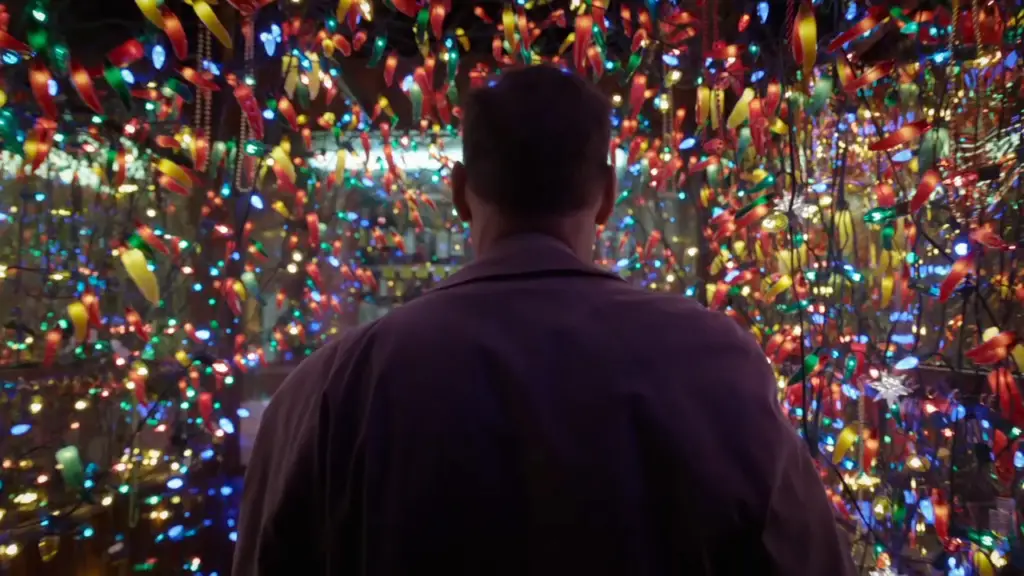
Strategic Use of Music and Sound
In addition to its unique cinematography, Birdman employs a dynamic score that integrates seamlessly with the narrative. The jazz drumming, performed by Antonio Sanchez, acts as both a backdrop and a catalyst for the film’s emotional rhythm. This lively, percussive score mirrors Riggan’s escalating anxiety and frenzy, punctuating key moments with urgency while simultaneously providing a sense of spontaneity.
The sound design plays a critical role in this exploration of mental states. The blending of diegetic sound—such as conversations and ambient noise—with the jazz score creates an immersive atmosphere that reflects Riggan’s complex psyche. The clashing sounds and cacophony of voices elevate the experience, propelling the viewer into the depths of Riggan’s existential crisis. Through diverse auditory techniques, the film captures the disorienting nature of his reality, illustrating how sound can articulate emotion and tension.
Theatrical Elements and Meta-Narrative
Finally, Birdman’s narrative is deeply rooted in theatrical elements, blurring the lines between performance and reality. The film’s setting in a Broadway theater creates a meta theatricality that echoes the themes of identity and the pressure of performance. Riggan’s relationship with other characters, especially his cast members, serves as a reflection of his own internal conflicts, leading to moments of both collaboration and tension.
The layers of self-referentiality invite audiences to consider the nature of art, performance, and authenticity. Riggan’s journey toward self-discovery is paralleled by the play he is staging, allowing Birdman to serve as a meditation on the artistic process. Through character interactions and the feedback loop between the onstage and offstage worlds, the film emphasizes the psychological struggles artists face, leading to a rich tapestry of narrative that resonates on multiple levels.
Book Recommendations: Exploring Parallel Themes
To further explore the psychological and philosophical themes found in Birdman, here are five books that resonate with the film’s exploration of identity, mental health, and the pressures of artistic success.
The Ego and the Id by Sigmund Freud
Freud’s seminal work delves into the complexities of human psychology, focusing on the interplay between the ego, id, and superego. This book provides insight into the mental conflicts that can arise from societal expectations and personal desires, mirroring Riggan’s struggles in Birdman.
Buy The Ego and the Id here
Man’s Search for Meaning by Viktor E. Frankl
In this profound memoir, Frankl reflects on his experiences in Nazi concentration camps and explores the quest for meaning amidst suffering. His insights on finding purpose resonate with Riggan’s journey as he navigates his own existential crisis and search for relevance in a transient world.
Buy Man’s Search for Meaning here
The Bell Jar by Sylvia Plath
Plath’s semi-autobiographical novel depicts the struggles of a young woman grappling with mental health issues and societal pressures. The themes of identity, depression, and the quest for authenticity align closely with Riggan’s experiences in Birdman, highlighting the intricate relationship between personal turmoil and societal expectations.
Buy The Bell Jar here
Steppenwolf by Hermann Hesse
This novel explores the duality of human nature through the life of Harry Haller, a man torn between his primal instincts and desire for refinement. The themes of existentialism and inner conflict resonate with Riggan’s character as he oscillates between his past successes and present realities.
Buy Steppenwolf here
Creative Anxiety: How to Achieve Innovation in Your Business by James J. Adams
Adams examines the relationship between anxiety and creativity, offering insights into how artists and innovators can navigate mental health challenges while striving for excellence. This book provides valuable perspectives on the burdens of success that are at the forefront of Riggan’s character arc in Birdman.
Buy Creative Anxiety here
Conclusion: Reflecting on the Journey of Birdman
In examining Birdman, we uncover a rich tapestry of psychological and philosophical themes that resonate on multiple levels. From the profound exploration of identity to the ramifications of success, Riggan Thomson’s journey serves as a mirror reflecting our own struggles with self-worth and existential dilemmas. This Birdman analysis highlights the intricate balance between personal ambition and societal expectations, revealing how easily one can be consumed by the very pursuits meant to define them.
The film’s innovative visual and narrative techniques further enhance its exploration of these themes, drawing audiences into Riggan’s chaotic world. As viewers, we are left contemplating the fragile nature of success and fulfillment, questioning whether true freedom lies in artistic expression or in the acceptance of our limitations. Ultimately, Birdman challenges us to confront our inner demons, urging us to seek authenticity amidst the noise of external validation.
Take a look at all our in-depth reviews here.

